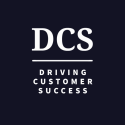3 Ways Customer Success Plays a Pivotal Role in B2B Sales and Marketing
It should be no surprise that B2B customers take longer to make final purchase decisions than B2C customers. B2B customers must use factual reasoning and in-depth research to find solutions that meet their organization’s competitive, profit, or productivity objectives. As a result, the B2B sales cycle is a long process, as B2B sales and marketing teams have to spend longer nurturing their prospects.
The time it takes to acquire new leads and retain existing ones is made worse if your B2B sales and marketing do not collaborate and have different goals when dealing with customers. To solve this problem, you need to use your customer success (CS) department to align your sales and marketing teams, focusing on shared goals that drive a customer-focused business to create more profound loyalty and accelerate revenue growth. CS can also ensure that the B2B sales department only focuses on acquiring the company’s ideal customers. Then, when a new customer’s contract runs out, the B2B marketing team and CS team find it easier to upsell, cross-sell and renew.
How CS’s Role Can Make a Difference in B2B Sales And Marketing
A CS team can help B2B sales and marketing teams improve their relationship with customers by focusing on shared goals regarding renewals and acquiring new customers, an ideal customer profile, value proposition, and company messaging.
1. CS Makes It Easier to Agree on an Ideal Customer Profile
Your CS team can assist your sales and marketing teams in creating an ideal customer profile using data from existing customers. To start this process, use customer data relevant to their occupation, company, industry, age, how they prefer to communicate, and their pain points. Then use this data to create a B2B customer persona and a relevant customer journey so that you understand how your product or service offering can solve their pain points. Adopting a value-based mindset ensures that all three teams focus on generating revenue from a shared understanding of their ideal customer.
To help all three teams build an ideal customer profile, your CS department could track a customer’s health score. This metric ensures that the focus remains on selling to active, valuable customers who have seen improvements in their business after purchasing your product. If a B2B customer has already experienced success with your product or service, they will be more likely to renew their contract.
Additionally, as most B2B businesses run on a subscription model, it would also be helpful to determine an ideal customer based on monthly recurring revenue (MRR) figures. This metric tells you how much a customer spends on your product or service every month so that you can predict how much more revenue you could get in the future if they renew their subscription. Data such as the expansion MRR can also help determine the additional revenue derived from customers outside their subscription model. Finally, this metric can give you an idea of your sales and marketing teams’ success in cross-selling and upselling and whether you could improve these techniques to sell more in the future.
Your customer success department can also help the B2B sales and marketing departments understand the customer lifetime value (CLV) of each customer, demonstrating how valuable a particular customer is to your company. Additionally, once you discover existing customers who can offer value like this, you can assess their similarities and use this insight to create a data-driven customer acquisition strategy.
2. CS Can Help Accelerate the Sales Cycle to Achieve a Deal Quicker
By using the customer’s health score, MRR, Expansion MRR, and CLV data from the CS team to build your ideal customer persona, your B2B sales, and marketing departments can speed up the renewal, upselling, and cross-selling process using CPQ. In addition, this type of software can assist these three teams in quickly generating various options, prices, or configurations for customers based on their needs or customer profiles.
Rather than searching countless spreadsheets for the right option and price, CPQ software allows you to preprogram discounts, prices, scenarios, options, and configurations to create an accurate data-driven quote and send this to relevant parties quickly for approval. When creating quotes and completing a renewal, upselling, or cross-selling process become effortless, this means that sales and marketing teams can focus more on relationship marketing, leading to more revenue.
Additionally, CPQ technology allows teams to personalize quotes for each customer based on their needs. It will enable B2B sales, marketing, finance, and CS teams to sell legally and financially viable options.
3. CS Helps Construct an Environment of Collaboration With Shared Customer-Centric Goals
CS can also encourage creating a cross-functional team between all three departments to share all goals to help customers achieve their objectives. Start by ensuring that every department head attends a weekly meeting to share the customer-focused initiatives their team is working on to improve alignment and information sharing across the company.
For example, CS could spearhead meetings with the heads of B2B marketing and sales to discuss product usage data which tracks how often customers use a product or service. Based on these figures, it could inform both teams that it plans to send an email asking for qualitative feedback to find out what an existing customer finds useful when using the product. CS can also discuss having regular business reviews with existing customers to improve loyalty and increase value. Then, the B2B sales and marketing teams could tailor renewal configurations and communications in line with this feedback.
For instance, this can help the B2B marketing team use targeted communications in a timely manner to prompt customers to request more information before their existing contract ends. In addition, these communications can nurture customers after the initial sale to drive more reliable business outcomes based on customer-focused data.
Next, working in collaboration can also build empathy across these three teams. If these teams also want a closer look at what each other does to further a customer’s objectives, they could also discuss holding training sessions and workshops. For example, the B2B sales team could allow certain marketing team members to shadow them as they speak to customers to understand pain points better. Additionally, CS could hold a training session on the critical lessons they learn from existing customer business reviews so that this can be fed back into the B2B sales and marketing process.
CS can also persuade an organization to implement cross-departmental shared key performance indicators (KPIs) that reward all three teams. For example, you could use the lead-to-customer percentage, which could help measure the effectiveness of the joint efforts of the B2B sales and marketing teams. In addition, the opportunity-to-customer win rate can track the success rate at which your sales team can close qualified leads.
Even more, you could regularly measure how well your customer success, marketing, and sales teams can convert one-time purchases into loyal customers by continually measuring customer sentiment through a customer effort score (CES). Gartner supports this metric by stating that it is 40 percent more effective in forecasting a customer’s loyalty than a customer’s satisfaction score.
To drive reliable revenue streams, your CS department can collect the correct customer data to help B2B sales and marketing teams effectively navigate the renewals, upselling, and cross-selling processes. Additionally, this data can help sales reps and marketers champion their existing customers to generate higher revenue and create a data-driven strategy to acquire new kinds of these ideal customers. Lastly, these three teams can continually work together to gather further B2B customer journey data, ensuring they continue learning how to create personalized solutions for qualified leads so that these deals can be closed quicker.
– Hazel Raoult
Original post here.

Hakan Ozturk
Founder, theCScafe.com, #1 Weekly Customer Success Newsletter
Hakan Ozturk is a Paris-based Customer Success leader with over 15 years of experience in the computer software industry. Passionate about driving growth and delivering value to strategic customers, Hakan has established himself as a trusted industry expert. As the Founder of The Customer Success Café Newsletter and TopCSjobs.com, Hakan provides valuable industry insights and daily-updated job opportunities worldwide in the field of Customer Success. Connect with Hakan to boost your career in CS and your company’s potential for massive growth.

Leave a Reply